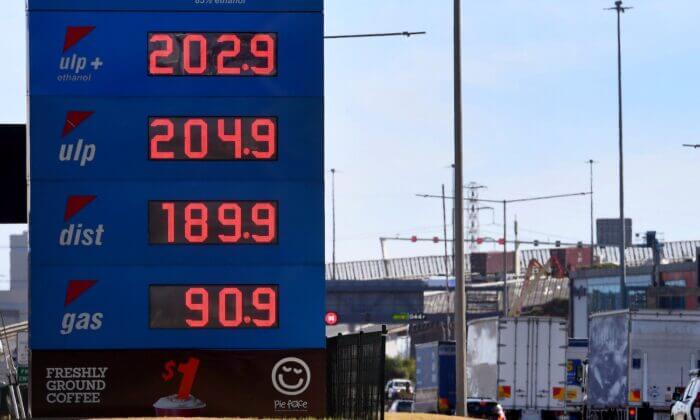Analysts with JP Morgan Chase said the price for a barrel of oil could more than triple if Russia decides to cut its output amid record-high gas prices.
The current price for a barrel of oil stands at around $110, but that could increase to a “stratospheric” $380 per barrel if Russia acts to cut output, JP Morgan’s analysis wrote in a note, according to Bloomberg News.
“It is likely that the government could retaliate by cutting output as a way to inflict pain on the West,” the analysts wrote in what they described as a worst-case scenario. “The tightness of the global oil market is on Russia’s side.”
JP Morgan analyst Natasha Kaneva said that Russia cutting production by 3 million barrels a day would push global prices to $190 per barrel. And the worst-case scenario, she added, would be if Moscow cut 5 million barrels per day, which could send the price to $380.
Since the start of the Ukraine conflict on Feb. 24, Western nations have hit Russia with punishing sanctions. However, Russia supplies much of Europe with oil and natural gas. The United States, meanwhile, has blocked all Russian oil exports since March.
JP Morgan’s analysts added that if the West continues to target Russia’s oil industry, the Kremlin may not play along.
“The most obvious and likely risk with a price cap is that Russia might choose not to participate and instead retaliate by reducing exports,” the note said, according to Bloomberg.
Data from AAA shows that the nationwide average for a gallon of regular gas currently is hovering around $4.81 as of Sunday, a slight decline of about 10 cents from the previous week.
Last week, when asked about how long Americans should expect to pay high gas prices, President Joe Biden claimed that they will continue to be elevated as long as the conflict takes to resolve.
“As long as it takes so Russia cannot in fact defeat Ukraine and move beyond Ukraine,” Biden told reporters on June 30. “This is a critical, critical position for the world. Here we are. Why do we have NATO? I told Putin that in fact, if he were to move, we would move to strengthen NATO. We would move to strengthen NATO across the board.”
White House economic adviser Brian Deese said that Americans should pay high prices because it “is about the future of the liberal world order, and we have to stand firm.”
Biden also attempted to shift the blame to gas stations for the higher prices, writing on Twitter: “My message to the companies running gas stations and setting prices at the pump is simple: this is a time of war and global peril. Bring down the price you are charging at the pump to reflect the cost you’re paying for the product. And do it now.”
He did not provide any examples of how gas stations could “bring down the price.” It’s also not clear if he was writing to individual gas station owners, companies, or individuals who own many franchises.
A day later, Pentagon press secretary John Kirby defended the Twitter post in a Sunday morning interview with Fox News.
“If everybody cooperates on this, we can bring the price down at least by about a dollar a gallon,” Kirby remarked, “so he’s working very, very hard to do this because he knows the impact that high gas prices have on the American household.”










